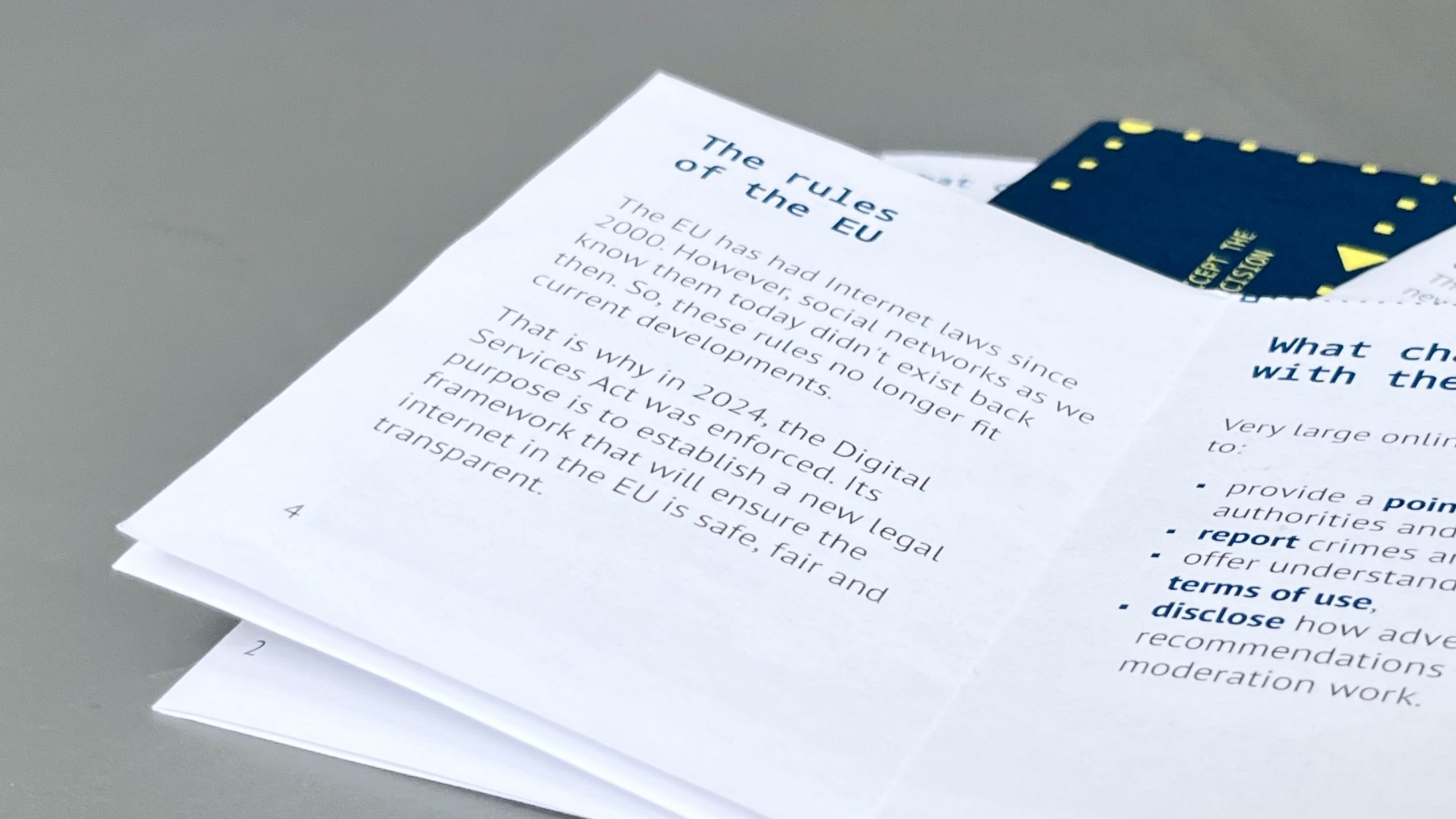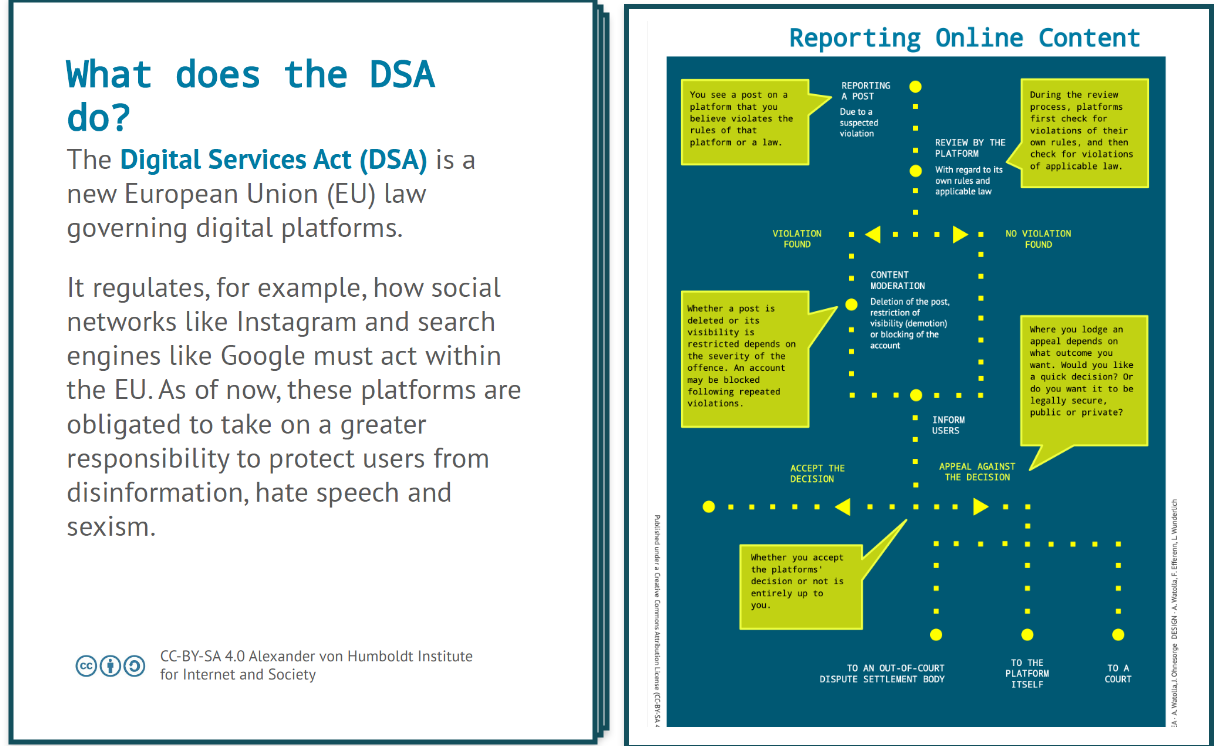
Zine on platform regulation: What does the Digital Services Act (DSA) do?
Much of our everyday life now takes place on digital platforms. We use search engines to find information, discuss politics on social media and shop in online stores. These platforms are operated by private companies that use their own rules and algorithms to determine which content is visible and how widely it is shared.
This is particularly significant on social networks, such as Instagram, Facebook and X (formerly Twitter), where public debate and private communication overlap. This means that the decisions made by these platforms significantly influence which topics receive attention and which voices are heard. Given the profound impact that platforms have on public communication, clear rules are needed to define their responsibility towards society.
The Digital Services Act (DSA) is the first uniform legal framework of its kind created by the European Union. Large platforms must, for instance, identify risks such as misinformation or discrimination, clarify how they make recommendations and be subject to independent oversight. The aim is to create a safer and more transparent online environment in which fundamental rights, such as freedom of expression and non-discrimination, are better protected. But what does that mean in practice? Our zine provides an introduction.
One zine, one goal: How can I take action against problematic content as a user?
This zine offers a straightforward introduction to the changes brought about by the Digital Services Act. It explains why we need to regulate platforms and how the DSA can protect our rights online. The DSA imposes certain obligations on platforms when dealing with harmful content, such as hate speech and disinformation. The zine also explains what action users can take in such cases.
Why Zines?
Zines (pronounced ‘siiines’, like the end of “magazine” in English) are part of the history of counterculture. They are often artistically designed, self-published small formats that can be printed in small print runs and easily distributed. They fit in every pocket and that is exactly what it should be about when it comes to the dominant discourses of our society. If we want everyone involved and affected to have a say, then the necessary knowledge must also be accessible to everyone.
Target group and learning outcomes
The zine is intended for people who have used platforms, either personally or through acquaintances and relatives. Its aim is to improve understanding of why platform regulation is necessary, explain what the Digital Services Act is, and emphasise users' rights against hate speech and disinformation online. The material is therefore suitable for teachers, students and interested individuals, as well as political decision-makers, to illustrate how each individual can contribute to making the internet fairer and safer.
DSA research network
This open educational resource is published under the terms of the CC BY-NC-SA 4.0 Licence which permits unrestricted use, provided the original work is properly cited.
The zines are double-sided: there is a poster on one side of the sheet and the pages of the zine on the other. These instructions will help you to fold the zines to turn an A4 sheet of paper into a readable little book. You can open it again at any time to read the poster page.
HIIG is continuously developing a wide range of OER, including a lecture series, a future thinking toolkit and several games.


